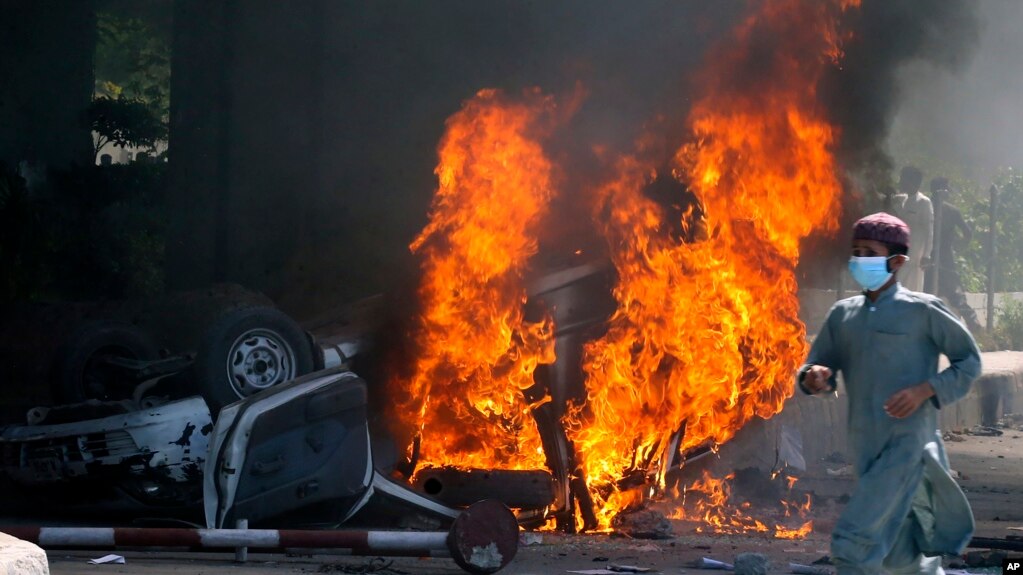By Staff Reporter
ISLAMABAD: The caretaker government said Sunday it had started military trials for civilians accused of attacking military installations and memorials in May, defying a Supreme Court order that barred such proceedings until further notice.
The government filed an application to the top court, saying the trials were necessary to safeguard the interests of the accused, who had been in custody for more than five months under laws that allow for summary trials and executions.
“It is imperative that their trials are conducted and concluded so that those who may merit acquittal can be acquitted, and those who may merit minor sentences and have already served time in custody can also be released,” the government said in response to a SC order passed in August. “Furthermore, accused persons, if convicted, can avail remedies available under the law.”
The trials would remain subject to the outcome of the petitions challenging their legality before the Supreme Court, which is set to resume hearings on Monday, the government said.
A total of 102 civilians were arrested for their alleged involvement in the attacks on military targets, including the headquarters of the army and the intelligence agency, and the house of a top military official in Lahore, in several cities across Pakistan on May 9. The attacks came after a brief arrest of the former prime minister Imran Khan in a corruption case. The government and army then said the suspects would be tried in military courts.
The Supreme Court is set to resume hearings on Monday on the legality of the military trials, which have faced widespread criticism from within Pakistan and rights groups globally for being secretive and violating fundamental rights.
Several petitions, filed by political parties, lawyers, civil society activists and relatives of the accused, contend that the trials of civilians by military courts are unconstitutional and violate their fundamental rights.
The Supreme Court had ordered the government on August 3 to refrain from starting military trials for civilians until it decided on its constitutionality.
“The court would want to restrain the Pakistan Army from taking any unconstitutional step,” then Chief Justice Umar Ata Bandial had observed when the case was last heard in August.
Attorney General for Pakistan Mansoor Awan had reiterated an assurance “on instructions specifically obtained from the highest military authorities” that court martial of civilians would not commence without notifying the apex court.
The order noted, “We are confident that this commitment will be adhered to, and trials shall not commence without informing the court.”
Justice Bandial has since retired and been replaced by Chief Justice Isa, whose elevation garnered nationwide interest given his reputation as a maverick judge and his hard-hitting judgments criticizing the role of the country’s powerful military in politics.
Last week, CJ Isa had remarked, during another hearing, that the top court would be hearing important cases, such as the trial of civilians by military courts and holding elections on time, in the coming weeks.
He constituted a five-member bench, led by Justice Ijazul Ahsan, to take up petitions on the military trial on October 23, after some of the detainees’ lawyers and relatives claimed that the military authorities had violated the court’s order and initiated court martial proceedings without notifying the Supreme Court.
Copyright © 2021 Independent Pakistan | All rights reserved




